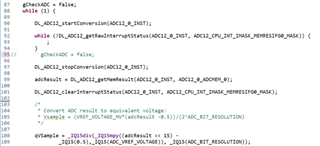I want an example of the ADC collecting the internal temperature, but I don't want to use interrupt reading, I want polling.
-
Ask a related question
What is a related question?A related question is a question created from another question. When the related question is created, it will be automatically linked to the original question.




